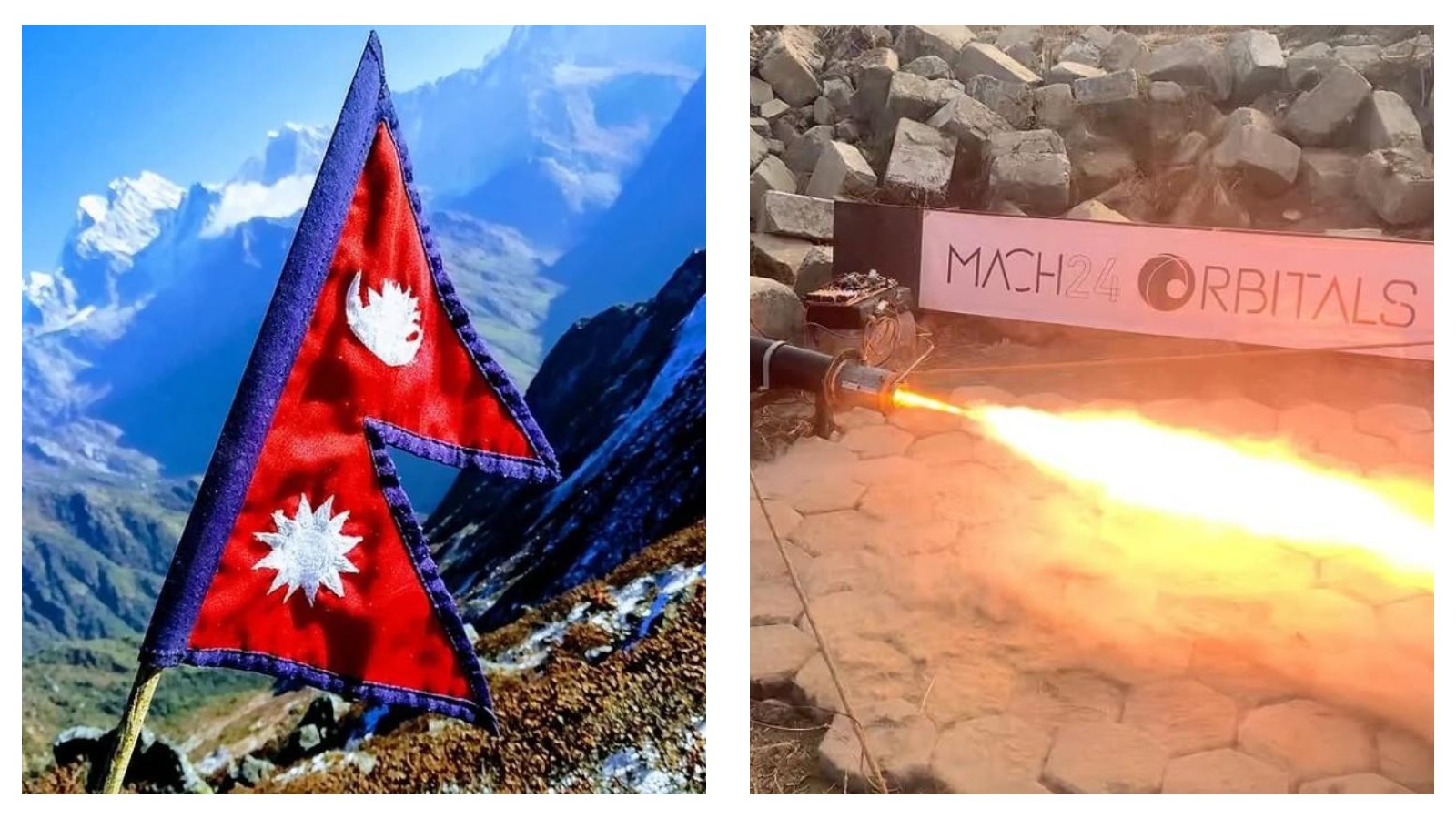By Jheruleene Anne Ramos
Mach24 Orbitals, Nepal’s first space-tech start-up, is looking to position the landlocked country within the global space ecosystem and make a significant technological breakthrough.
Founder Mohan Tamang plans to launch a 500kg satellite into low Earth orbit within the next five or six years, and he has emphasised that developing cost-effective satellites could help Nepal address key challenges such as disaster management and border security.
He said that Mach24 Orbitals, in collaboration with the Nepal Academy of Science and Technology, is developing Nepal’s first liquid rocket engine, with a focus on hybrid propulsion technology, and it could be a “game-changer” for the country.
Starting a space industry from scratch
Tamang hopes that Mach24 Orbitals’ efforts will raise awareness that Nepal can develop its own space industry like other Asian countries.
“If you look at the Asian market, China, Japan, India, and Korea have made advances in space technology. But space remains inaccessible for us,” he told The Kathmandu Post.
This follows the development and launching of Nepal’s first sounding rocket, Garuda, on 20 March 2021.
In a collaborative undertaking with the Nepal Army and the National Innovation Centre, the historic launch took place in Dharapani using potassium nitrate and sugar as fuel.
After a trial period involving over 15 rockets, Garuda marked a significant milestone for Nepal’s space industry and won the prestigious Nancy Squires Award at Spaceport America.
READ MORE: Earth’s biggest iceberg drifts in shallow waters of South Georgia

Development of space technology a challenge
Tamang acknowledged that the launching of satellites and rockets in Nepal faces numerous challenges given the country’s limited resources and financial constraints.
Despite interest from foreign investors, establishing a rocket company has been difficult, facing skepticism from government, local investors, and the public.
“The government has not actively supported us. We need policies that facilitate research,” he said.
Aside from lack of support, launching rockets remains a “logistical challenge” since there is a lack of designated testing sites.
“There are no designated sites for testing in Kathmandu Valley. Even when we need to test an engine, there are noise and safety concerns,” Tamang noted.
YOU MAY ALSO LIKE: Environment news: Pacific region takes on fight against climate change

Optimism for the future
Despite those challenges, Tamang and his team remain optimistic about Nepal’s potential in the global space industry.
While many companies focus on Mars exploration or lunar landings, Tamang emphasised the need for Nepal to take smaller steps before aiming for such ambitious missions.
“We have to start small before we can dream big,” he cautioned.
However, he is confident that Nepal can develop its own aerospace industry and achieve breakthroughs, much like other countries that have advanced their space capabilities.
“The world is shifting. We need to decide whether to be left behind or take the leap forward,” Tamang declared.
MORE FROM JHERULEENE ANNE RAMOS: New MH370 search sparks hope for closure
